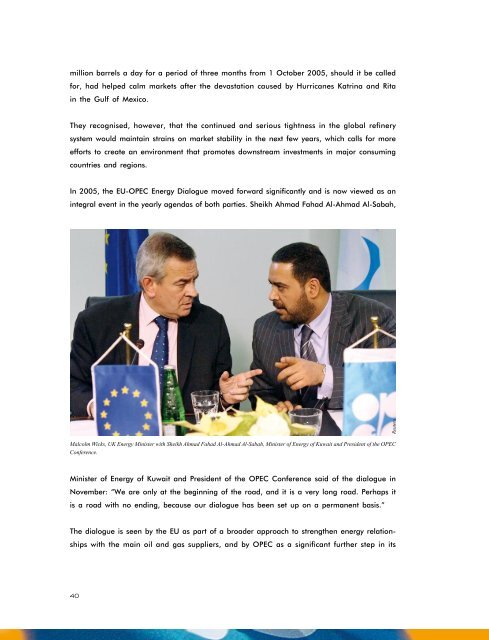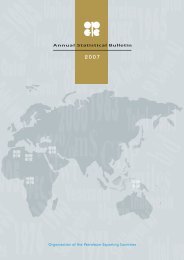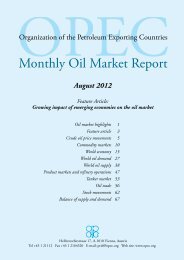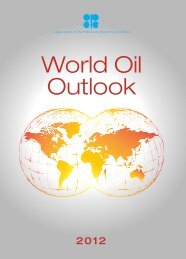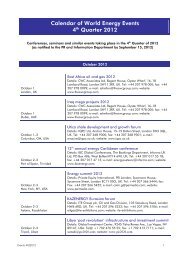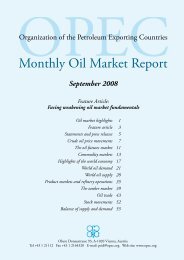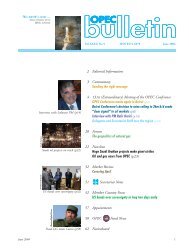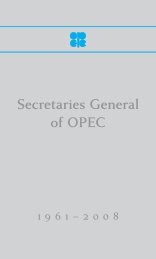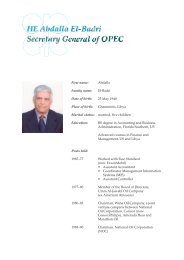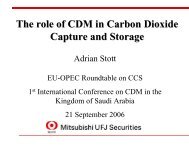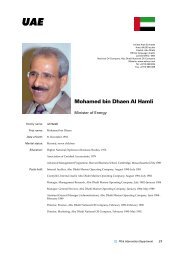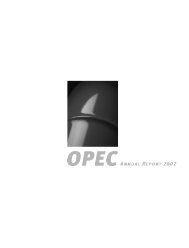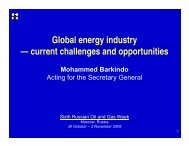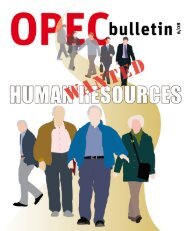2005 - OPEC
2005 - OPEC
2005 - OPEC
You also want an ePaper? Increase the reach of your titles
YUMPU automatically turns print PDFs into web optimized ePapers that Google loves.
million barrels a day for a period of three months from 1 October <strong>2005</strong>, should it be called<br />
for, had helped calm markets after the devastation caused by Hurricanes Katrina and Rita<br />
in the Gulf of Mexico.<br />
They recognised, however, that the continued and serious tightness in the global refinery<br />
system would maintain strains on market stability in the next few years, which calls for more<br />
efforts to create an environment that promotes downstream investments in major consuming<br />
countries and regions.<br />
In <strong>2005</strong>, the EU-<strong>OPEC</strong> Energy Dialogue moved forward significantly and is now viewed as an<br />
integral event in the yearly agendas of both parties. Sheikh Ahmad Fahad Al-Ahmad Al-Sabah,<br />
Malcolm Wicks, UK Energy Minister with Sheikh Ahmad Fahad Al-Ahmad Al-Sabah, Minister of Energy of Kuwait and President of the <strong>OPEC</strong><br />
Conference.<br />
Minister of Energy of Kuwait and President of the <strong>OPEC</strong> Conference said of the dialogue in<br />
November: “We are only at the beginning of the road, and it is a very long road. Perhaps it<br />
is a road with no ending, because our dialogue has been set up on a permanent basis.”<br />
The dialogue is seen by the EU as part of a broader approach to strengthen energy relation-<br />
ships with the main oil and gas suppliers, and by <strong>OPEC</strong> as a significant further step in its<br />
40<br />
Reuters


